Global Carnival

How has the Double 11 Shopping Carnival impacted e-commerce globally ?
The Double 11 Shopping Carnival, also known as Singles' Day, is an annual event that originated in China and has become the world's largest online shopping festival. It falls on November 11th every year and was started by Alibaba in 2009. The event has had a significant impact on global e-commerce, both positively and negatively. In this article, we will explore the various ways in which the Double 11 Shopping Carnival has influenced e-commerce around the world. One of the most obvious impacts of the Double 11 Shopping Carnival on global e-commerce is the increase in sales and revenue. As more people participate in the event, retailers and brands from all over the world have seen a surge in their sales during this period. This has led to increased profits for these businesses and has helped them expand their reach globally. The success of the Double 11 Shopping Carnival has encouraged more countries to adopt e-commerce as a viable business model. Many countries have seen the potential of e-commerce and have started investing in developing their own online shopping platforms. This has led to the growth of e-commerce worldwide and has made it easier for consumers to access products from different parts of the world. The success of the Double 11 Shopping Carnival has also led to increased competition among e-commerce platforms. As more companies try to replicate the success of this event, they are forced to innovate and offer better services to attract customers. This has resulted in improved customer experiences and has pushed e-commerce platforms to become more efficient and effective. However, the massive scale of the Double 11 Shopping Carnival has also raised concerns about its environmental impact. The event generates a huge amount of waste, including packaging materials and unsold products. This has led to calls for more sustainable practices in e-commerce, such as reducing packaging waste and promoting recycling. Another challenge faced by small businesses due to the Double 11 Shopping Carnival is the increased competition from larger retailers and brands. These smaller businesses often struggle to compete with the discounts and promotions offered by bigger companies during the event. This can lead to a decline in their sales and revenue, making it difficult for them to survive in the highly competitive e-commerce market. In conclusion, the Double 11 Shopping Carnival has had a significant impact on global e-commerce. While it has brought about increased sales and revenue, global expansion of e-commerce, and competition among e-commerce platforms, it has also raised concerns about environmental issues and challenges for small businesses. As e-commerce continues to grow globally, it is important for businesses and consumers alike to consider these factors and work towards creating a more sustainable and inclusive e-commerce ecosystem.

What role does mobile shopping play in the success of Double 11 Shopping Carnival ?
Mobile shopping has significantly contributed to the success of the Double 11 Shopping Carnival by increasing accessibility, providing personalized experiences, integrating social media, and offering omnichannel experiences.

How has the COVID-19 pandemic affected this year's Double 11 Shopping Carnival ?
The COVID-19 pandemic has significantly impacted the annual Double 11 Shopping Carnival, one of China's largest online shopping events. The event has seen an increase in sales due to a surge in online shopping as people stay at home. Consumer behavior has also changed, with many prioritizing essential items over luxury purchases. Sellers face challenges in managing inventory levels and adapting marketing strategies. Health and safety concerns have been raised, leading to measures such as contactless delivery and enhanced sanitation practices. Despite these challenges, the event has still generated record-breaking sales figures.
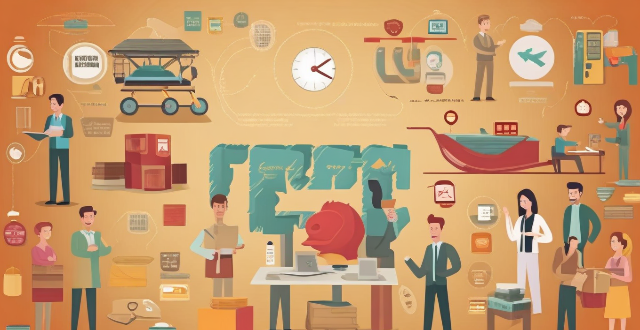
What strategies do retailers use to attract customers during the Double 11 Shopping Carnival ?
Retailers employ various strategies to attract customers during the Double 11 Shopping Carnival, including pre-sale promotions, limited-time offers, free shipping and returns, bundling products, social media promotions, personalization and customization, and excellent customer service. These tactics aim to create excitement, build trust, and provide a tailored shopping experience for customers, ultimately maximizing sales and fostering long-term relationships.

How do Chinese consumers typically celebrate Double 11 Shopping Carnival ?
The Double 11 Shopping Carnival, also known as Singles' Day, is the world's largest online and offline shopping day. It originated in China and is celebrated on November 11th each year. Chinese consumers typically celebrate this event by engaging in various activities and shopping sprees such as adding items to their wishlist, setting budgets, following their favorite brands, shopping online, participating in flash sales, watching live streams, shopping offline, sharing their experience, exchanging or returning items, and planning for next year's event.

What are the biggest trends in consumer behavior during the Double 11 Shopping Carnival ?
The Double 11 Shopping Carnival, also known as Singles' Day, showcases the latest trends in consumer behavior. Key trends include: 1. **Rise of Mobile Shopping** with increased usage, mobile payments, and social media influence. 2. **Personalization and Customization** through data-driven recommendations, customized products, and interactive experiences. 3. **Omnichannel Retailing** providing integrated experiences, using stores as showrooms, and advanced inventory management. 4. **Sustainable and Eco-friendly Shopping** with a focus on green products, reduced packaging, and promoting the circular economy. 5. **Live Streaming and Influencer Marketing** leveraging live commerce, influencer partnerships, and interactive features. 6. **Data-Driven Decision Making** among consumers using price intelligence, review analysis, and predictive analytics. These trends highlight the impact of technology and changing values on consumer behavior during one of the world's largest shopping events.

What is Singles' Day (Double 11 Shopping Carnival) and how did it originate ?
Singles' Day, also known as Double 11 Shopping Carnival, is an annual event celebrated on November 11th in China. It originated as a day for single people to celebrate their independence and has since evolved into the world's largest e-commerce shopping festival. The origin of Singles' Day can be traced back to Nanjing University in the early 1990s, where a group of students decided to celebrate their single status by organizing a party on November 11th. The idea caught on, and soon other universities began celebrating Singles' Day as well. In 2009, Alibaba noticed the growing popularity of Singles' Day among young people and decided to turn it into a shopping event by offering discounts and promotions specifically for this day. Singles' Day has become a crucial part of China's economy, generating billions of dollars in revenue each year. It not only benefits e-commerce platforms but also supports small businesses and manufacturers who rely on online sales to reach consumers. While initially celebrated by single individuals, Singles' Day has now become a cultural phenomenon that transcends relationship status. It represents consumerism and the power of technology in modern society while highlighting changing attitudes towards marriage and relationships in China.

What are some tips for finding the best deals during the Double 11 Shopping Carnival ?
The Double 11 Shopping Carnival, also known as Singles' Day, is one of the biggest online shopping events in China. It falls on November 11th every year and offers a plethora of discounts and deals from various retailers. Here are some tips to help you find the best deals during this shopping extravaganza: - Plan ahead by making a wishlist and setting a budget. - Research beforehand by comparing prices and reading reviews. - Use coupons and promo codes to save money. - Be ready on time by logging in early and staying alert. - Take advantage of flash sales and limited-time offers by following retailers on social media and signing up for newsletters.

How sustainable is the current model of the Double 11 Shopping Carnival, considering issues like overconsumption and waste ?
The Double 11 Shopping Carnival, also known as Singles' Day, has become one of the world's largest online shopping events. Originating in China, it is held annually on November 11th and has grown exponentially since its inception by e-commerce giants like Alibaba and JD.com. However, the sustainability of this massive sales event is being questioned due to concerns over overconsumption and waste. Overconsumption is a major concern during the Double 11 event, with heavy marketing campaigns leading to impulse buying and consumers purchasing items they do not need. The deep discounts often encourage shoppers to buy more than they originally intended, contributing to a culture of overconsumption. Additionally, the environmental impact of the event is significant, with the production and shipping of goods consuming vast resources and energy. The surge in packaging and delivery services significantly increases greenhouse gas emissions and plastic waste. Waste issues are also prevalent during the Double 11 event. Many products are over-packaged to protect them during shipping or to appear more appealing, leading to increased waste. Some packaging materials are non-recyclable or difficult to recycle, adding to environmental concerns. A high volume of returned items results in wasted resources and additional waste from reverse logistics. Fast fashion and low-quality electronics sold during sales often have short lifespans, leading to earlier disposal and waste. However, there are attempts at sustainability during the Double 11 event. Some companies are using biodegradable or recyclable packaging to reduce environmental impact. There is an increasing number of sustainable and ethical brands participating in Double 11, promoting greener consumption. E-commerce platforms run campaigns to educate consumers about sustainable choices and the importance of responsible consumption. Initiatives to recycle packaging and old goods are being implemented to mitigate waste issues. In conclusion, the current model of the Double 11 Shopping Carnival raises valid concerns about overconsumption and waste. While the event drives significant economic activity and consumer enjoyment, steps towards greater sustainability are crucial for its long-term viability. Balancing commercial success with environmental responsibility is essential for the future of not just Double 11 but e-commerce as a whole.

How can international cooperation on climate change contribute to global security ?
International cooperation on climate change is vital for global security. It helps mitigate environmental disasters, promotes economic stability and growth, enhances social cohesion and peace, facilitates technology and knowledge sharing, and strengthens global governance and diplomacy. Through joint efforts, nations can address one of the most pressing challenges of our time and secure a safer future for all.
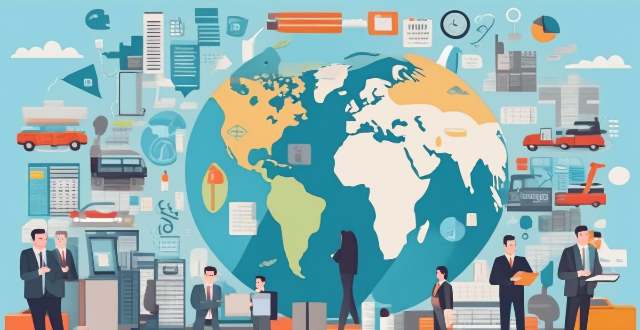
What are the latest trends in the global economy ?
The global economy is influenced by various interconnected factors including digital transformation, sustainability, global trade dynamics, monetary policies, and the rising influence of emerging markets. These trends are reshaping industries, fostering innovation, and influencing economic growth and policies worldwide.

How does climate variability affect global weather patterns ?
The impact of climate variability on global weather patterns is substantial, affecting temperature, precipitation, wind patterns, and extreme weather events. Key influences include El Niño and La Niña phases, monsoon systems, altered rainfall distribution, jet stream variations, tropical cyclones, heatwaves, cold spells, storms, floods, and droughts. Long-term climate trends like global warming also significantly affect weather patterns. Understanding these interactions is crucial for predicting future conditions and addressing climate-related challenges.

How do climate data analysis contribute to understanding global warming ?
Climate data analysis is essential for understanding global warming, its causes, effects, and potential solutions. Scientists collect temperature records, carbon dioxide concentrations, and sea level data to identify trends, establish correlations, and create predictive models. These efforts help develop effective strategies to mitigate the impacts of global warming.

What role does natural gas play in the global energy market ?
Natural gas is a key player in the global energy market due to its environmental advantages, economic benefits, contributions to energy security, technological advancements, and versatile applications across sectors.

How does global shopping contribute to economy ?
Global shopping, or cross-border e-commerce, has become a crucial aspect of the global economy. It involves buying and selling goods and services across national borders through online platforms. This phenomenon has not only revolutionized shopping but also significantly contributed to economic growth worldwide. Here are some ways global shopping boosts the global economy: 1. Increased consumer spending: Global shopping provides consumers with access to a wide range of products from around the world, leading to higher consumer spending, which is a key driver of economic growth. 2. Benefits for sellers: Businesses can reach new customers and expand their market share by tapping into international markets, increasing revenue and profitability. 3. Job creation and employment opportunities: The rise of global shopping has given birth to numerous jobs in various sectors such as logistics, customer service, marketing, and technology. 4. Boosting local economies: Local businesses can reach customers beyond their geographical boundaries by exporting their products globally, generating revenue that helps sustain their operations and contribute to the local economy. 5. Encouraging innovation and competition: The global marketplace created by cross-border e-commerce encourages businesses to innovate and improve their products to stay competitive, benefiting consumers by providing them with high-quality products at competitive prices. 6. Fostering international trade relations: Global shopping promotes cooperation between nations by facilitating trade agreements and reducing barriers to entry for businesses looking to expand internationally.

What is the role of technology in improving global health outcomes ?
Technology plays a crucial role in improving global health outcomes through advanced medical equipment, digital health solutions, and more. It has revolutionized diagnosis, treatment, disease surveillance, prevention, accessibility, affordability of healthcare services, research and development initiatives, and health literacy and education. Technology's impact on global health will continue to grow positively as it evolves at a rapid pace.

How does global shopping affect local businesses ?
Global shopping has become increasingly popular due to the rise of e-commerce platforms and international shipping services. While it offers consumers a wider range of products and competitive prices, it also poses challenges for local businesses such as increased market competition, job displacement, cultural homogenization, environmental impact, intellectual property rights issues, and economic dependency. As consumers continue to embrace global shopping, it is crucial for local businesses to adapt and find ways to differentiate themselves in order to remain competitive and sustainable in the long run.
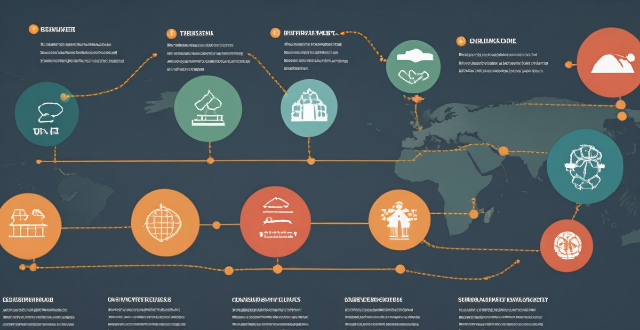
How does TCFD align with other global reporting initiatives like the Global Reporting Initiative (GRI) ?
The Task Force on Climate-related Financial Disclosures (TCFD) and the Global Reporting Initiative (GRI) are two global sustainability reporting frameworks that share several key points of alignment. Both provide guidelines for companies to report on their sustainability performance, with TCFD focusing specifically on climate-related financial disclosures and GRI covering a broader range of sustainability issues. They also emphasize the importance of materiality assessment, stakeholder engagement, risk management, and climate change disclosures in determining which aspects are most relevant to an organization's business model and strategy. By following both frameworks, companies can provide a more comprehensive picture of their sustainability performance and demonstrate their commitment to addressing climate change and other sustainability issues.

How do communication satellites improve global connectivity ?
Communication satellites play a crucial role in enhancing global connectivity by providing reliable and high-speed internet access to remote areas, facilitating international communication, and supporting various applications such as telemedicine, e-learning, and disaster management. They cover vast geographic areas, including mountainous regions, deserts, and oceans, where traditional infrastructure is not feasible or cost-effective. Satellite internet services can be deployed quickly, often within days or weeks, compared to months or years required for terrestrial networks. They enable seamless communication across national borders, fostering global cooperation and collaboration. Newer generations of low Earth orbit (LEO) satellites reduce latency by orbiting closer to Earth, improving the speed and quality of international communication. Satellites facilitate telemedicine by providing real-time video conferencing between patients and healthcare professionals located far apart. They enable e-learning by connecting students in remote areas with educational resources and teachers around the world. During natural disasters or crises, satellites provide critical communication channels for emergency response teams and affected communities.

What are the current global health challenges ?
The world is facing a multitude of health challenges that require immediate attention and action, including infectious diseases, non-communicable diseases, mental health issues, and environmental health hazards. Infectious diseases such as COVID-19, HIV/AIDS, tuberculosis, and malaria continue to be a major threat to global health. Non-communicable diseases like cardiovascular diseases, cancer, diabetes, and chronic respiratory diseases are becoming increasingly prevalent globally. Mental health disorders, including depression, anxiety disorders, and substance abuse, are a growing concern worldwide. Environmental factors such as air pollution, water pollution, climate change, and natural disasters also pose significant risks to human health.

Is global shopping more convenient than local shopping ?
Global shopping, also known as cross-border e-commerce, has become increasingly popular in recent years. It allows consumers to purchase products from different countries and have them delivered to their doorsteps. However, is it really more convenient than local shopping? This article explores the advantages and disadvantages of global shopping and concludes that whether it's more convenient depends on various factors such as product availability, pricing, delivery times, shipping costs, and customs duties. While global shopping offers a wider range of products and potentially lower prices, it also comes with longer delivery times, higher shipping costs, and potential additional charges like customs duties. Therefore, consumers should carefully consider these factors before deciding which option is most convenient for them.

Can global shopping help in finding unique and rare products ?
Global shopping allows consumers to access a wide range of unique and rare products from diverse markets around the world. By expanding your shopping horizons beyond your local market, you increase your chances of discovering unusual items directly from manufacturers and artisans at potentially lower costs. To find these one-of-a-kind products through global shopping, research potential countries or regions known for producing desired items, use specialized search engines and directories, follow social media influencers and bloggers, and attend international trade shows and expos. However, challenges such as longer shipping times, higher costs, quality assurance, and ethical considerations must be taken into account.
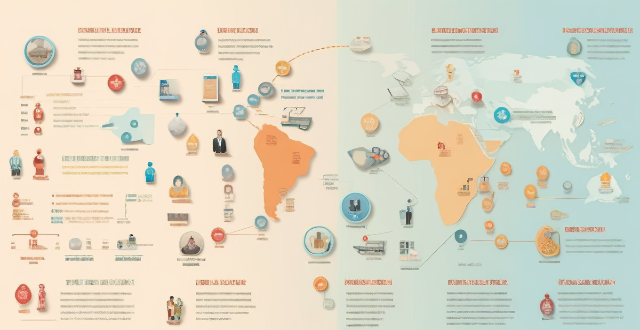
What challenges do countries face when working together on a global scale ?
Global collaboration faces political, economic, cultural, and logistical challenges. Politically, differing national interests, sovereignty concerns, and leadership dynamics can impede progress. Economically, fair resource allocation, trade agreements, and sanctions are contentious issues. Culturally, language barriers, diverse values, and educational gaps pose challenges. Logistically, coordination across time zones, travel restrictions, and technology disparities complicate matters. Addressing these challenges with open dialogue and cooperation is key to achieving shared global goals.
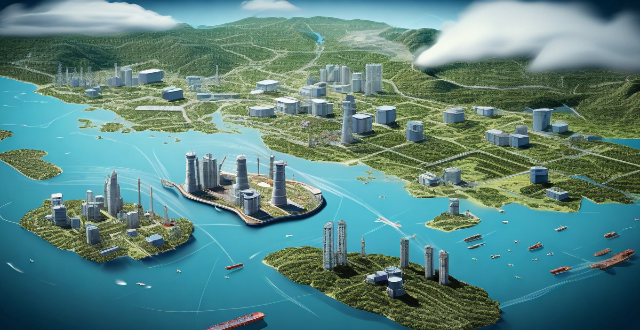
Is geoengineering a viable solution to global warming ?
Geoengineering, also known as climate engineering or earth system management, refers to the intentional manipulation of the global climate on a large scale to counteract the effects of global warming and reduce the risks associated with climate change. While geoengineering has potential benefits such as mitigating climate change, providing faster responses compared to conventional methods, and being relatively inexpensive, it also comes with uncertainties regarding long-term effects, lack of international regulation and governance, and limited scope compared to other mitigation strategies. Therefore, geoengineering should not be seen as a substitute for conventional mitigation strategies but rather complement them. Extensive research and international cooperation are essential before implementing any large-scale geoengineering projects to ensure their safety and effectiveness in addressing climate change challenges.

How does space exploration impact global cooperation and diplomacy ?
Space exploration has been a significant driver of global cooperation and diplomacy since the dawn of the space age. The pursuit of understanding our universe and the quest to explore beyond Earth's boundaries have fostered international collaboration, technological advancements, and diplomatic engagements that transcend traditional geopolitical tensions. In this discussion, we will delve into the various ways space exploration influences global cooperation and diplomacy.

How does international environmental law address global warming ?
International environmental law plays a crucial role in addressing global warming by setting standards, encouraging cooperation, and promoting sustainable practices through treaties, agreements, and principles. The Framework Convention on Climate Change (UNFCCC), the Kyoto Protocol, and the Paris Agreement are key legal instruments that establish targets for reducing greenhouse gas emissions and provide mechanisms for compliance and financial support. Other initiatives such as Regional Seas Programmes, the Convention on Biological Diversity (CBD), and Forest Law Enforcement, Governance and Trade (FLEGT) also contribute to mitigating climate change. Challenges include enforcement, political will, and ensuring equity and justice in actions taken. As the fight against global warming continues, international environmental law must adapt to evolving scientific, political, and technological landscapes, requiring collaboration and innovation among nations.

Can global shopping bridge the gap between different cultures ?
Global shopping, or cross-border e-commerce, has become increasingly popular in recent years. It offers consumers the ability to purchase products from other countries without leaving their homes. However, there are both potential benefits and challenges associated with this trend when it comes to bridging cultural gaps. Benefits include increased exposure to foreign cultures through fashion, food, and home decor; promoting mutual understanding through shared interests in technology, sports, and entertainment; and encouraging cultural sensitivity and respect through handicrafts, holiday celebrations, and language learning tools. Challenges and limitations include issues related to shipping costs, customs regulations, language barriers, loss of local cultural identity due to overreliance on foreign products, and the potential for consumerism rather than genuine cultural exchange. Overall, while global shopping offers opportunities for cultural exchange and understanding, it is important to approach this trend with mindfulness and consideration for its potential impact on individual cultures and the broader global community.

What role does global warming play in climate predictions ?
The text discusses the role of global warming in climate predictions, emphasizing its multifaceted impact on various aspects of the Earth's climate system. Key points include increased temperatures leading to melting ice, rising sea levels, and changes in precipitation patterns; intensified extreme weather events like heat waves and hurricanes; ocean acidification harming marine life; alterations in ecosystems affecting animal migration and habitats; agricultural impacts such as changing crop yields and growing seasons; and human health concerns including the spread of diseases and heat-related illnesses. The conclusion stresses the importance of considering these factors in future climate projections and mitigating the effects of global warming through reduced greenhouse gas emissions.

What are the most popular global shopping platforms ?
The text discusses the popularity of online shopping and provides a summary of five popular global shopping platforms: Amazon, eBay, Alibaba, Taobao, and JD.com. It highlights their unique features such as product range, shipping options, customer service, auction format, diverse inventory, international shipping, wholesale marketplace, global reach, trust and safety measures, consumer-to-consumer marketplace, local flavor, mobile shopping, electronics specialization, fast delivery, and quality assurance. The text emphasizes the importance of choosing the right platform based on individual needs.

What is the Paris Agreement and how does it contribute to global climate governance ?
The Paris Agreement, adopted in 2015, is a landmark global climate change agreement aimed at limiting global warming to below 2°C and pursuing efforts to limit it to 1.5°C above pre-industrial levels. It contributes significantly to global climate governance by establishing mechanisms such as Nationally Determined Contributions (NDCs), enhancing transparency and accountability, providing finance and capacity building, addressing loss and damage, conducting global stocktakes, and setting long-term goals. These measures help track progress, hold countries accountable for their commitments, support vulnerable nations, assess collective progress, and encourage more aggressive action towards mitigating climate change.